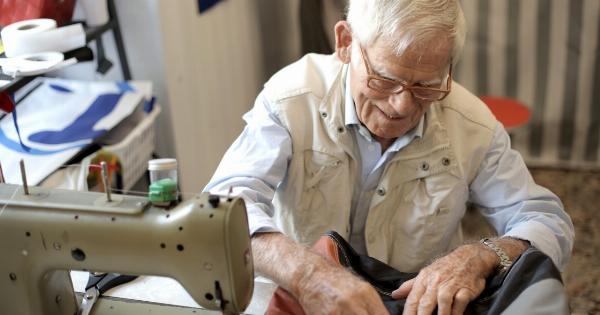As we grow older, our bodies undergo various changes that lead to physical, mental, and emotional decline. These changes are collectively referred to as aging.
For many years, scientists have been studying the science behind aging, and although much remains unknown, there have been many significant findings in recent years.
What causes aging?
The question of what causes aging has been debated for decades, but there are several widely accepted theories:.
Cellular Theory
The cellular theory suggests that aging is caused by changes in our cells. As we age, the cells in our bodies are less able to repair themselves, leading to a decline in our overall health.
One of the factors that contribute to cellular damage is free radicals, which are unstable molecules that can damage cells. Free radicals are produced naturally in our bodies, but they can also be caused by environmental pollutants and ultraviolet radiation.
Genetic Theory
The genetic theory of aging suggests that our genes play a fundamental role in the aging process. Some people are predisposed to age quicker because of their genetics.
For instance, genes that control the production of collagen can affect skin elasticity and contribute to premature aging.
Hormonal Theory
The hormonal theory of aging suggests that hormones play a crucial role in the aging process.
As we age, the levels of hormones like testosterone and estrogen decline, leading to a wide range of symptoms like memory loss, decreased libido, and decreased muscle mass. Researchers have been exploring how hormone replacement therapy can help alleviate such symptoms and improve overall health.
Telomere Theory
Another theory of aging is the telomere theory, which suggests that aging is caused by the shortening of telomeres.
Telomeres are the protective caps at the end of each chromosome that protect them from deterioration or fusion with neighboring chromosomes. As we age, our telomeres become shorter, leading to cell damage and eventually, cell death.
What are the effects of aging?
The effects of aging vary from person to person, but there are several common changes people experience as they age. Here are few:.
Physical Changes
Physical changes that can occur as we age include wrinkles, age spots, and thinning hair. We also experience a decline in bone density, which can lead to a higher risk of fractures.
Muscles and joints can become less flexible, leading to decreased mobility. Our organs, such as the lungs and heart, may become less efficient, making it harder to perform physical activities.
Cognitive Changes
Cognitive changes that can occur as we age include a decline in memory, decreased attention span, and slower processing speed. These changes are not necessarily indicative of dementia, but they can affect daily life and mental function.
Emotional Changes
Emotional changes that can occur as we age include increased risk of depression and anxiety.
These changes are often due to life transitions, such as retirement or the death of a loved one, but they can also be caused by biochemical changes in the brain.
How can we slow down the aging process?
Although we cannot stop aging, there are several ways to slow down the process and maintain good health in our golden years.
Eating a Healthy Diet
Eating a balanced diet with plenty of fruits, vegetables, and lean protein can help slow down the aging process. Certain foods are rich in antioxidants, which can help combat free radical damage.
Drinking plenty of water can also keep skin looking healthy and youthful.
Exercising Regularly
Exercising regularly can help us maintain muscle mass and flexibility. Regular exercise can also enhance cognitive function and improve cardiac health.
Maintaining Good Sleep Habits
Getting enough sleep is essential for good health. Poor sleep habits have been linked to a range of health issues, including weight gain and cognitive decline.
Reducing Stress
Stress can cause a wide range of health issues, including high blood pressure, anxiety, and depression. Managing stress through practices like meditation, yoga, or deep breathing can help boost overall health and well-being.
Conclusion
As we age, our bodies undergo many changes that affect our physical, emotional, and mental health. While there is no escaping the aging process, we can take steps to slow it down and maintain good health.
By eating a healthy diet, exercising regularly, getting enough sleep, and reducing stress, we can enjoy our golden years to the fullest.





























